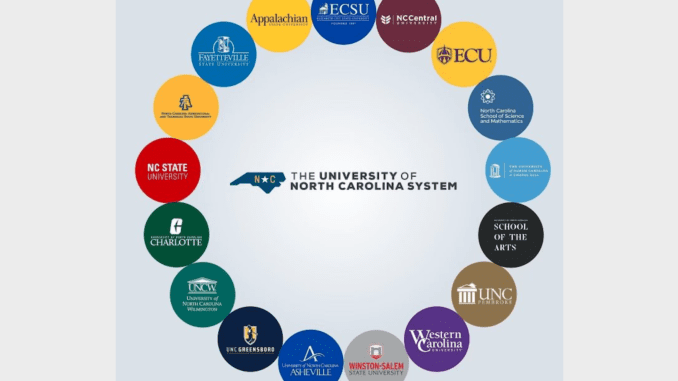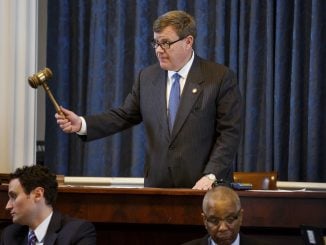
RALEIGH — With the enactment of the 2023-25 state budget on Oct. 2, billions in spending for the University of North Carolina and Community College Systems will take effect.
In a statement, University of North Carolina System President Peter Hans called the budget passed by the General Assembly a “huge win for North Carolina’s public universities” that supports the system’s mission.
“From children’s health care to faculty and staff salaries to campus repairs and renovations, this budget strengthens our work and expands our service to the state,” Hans said.
“Steady public support for higher education helped make North Carolina one of the fastest-growing states in America and made it possible to keep tuition flat for eight years in a row,” added Hans. “This delivers tremendous value for students and families, so I’m grateful to our citizens and our elected leaders for continuing a strong tradition of public investment.”
UNC System topline items in the budget:
- $15 million for research partnership development with next-generation energy businesses
- $47 million for engineering program support
- $47.2 million for health and medical program support
- $80 million for the expansion of health-related courses
- $530 million for repairs and renovations at UNC System schools
Funding is also provided for the new School of Civic Life and Leadership at UNC-Chapel Hill and an expansion of the N.C. Teaching Fellows Program.
The North Carolina Community College System will see over $1.474 billion in year one and over $1.514 billion in year two of the budget.
The Community College System had asked for a funding increase of $232 million in March. That request included $86.8 million to raise faculty and staff salaries by 7% salary increase as well as close to $144 million in student investment spending.
- $2.4 million to provide childcare services to enable parents to attend college courses
- $8 million for development of career pathways for students with intellectual disabilities
- $25 million to increase student financial aid
- $14.2 million for broadband access improvements at all 47 rural colleges in the state
- $55 million for courses to gain degrees in nursing and health care fields
- $400 million to complete the four-year community college capital commitment
Another $2 million in nonrecurring funds are included in both years of the budget for aiding students on track to graduate from public universities but may be at risk of dropping out over financial issues.
The budget also codifies the Short-Term Workforce Development Grants Program to help students cover the cost of workforce and continuing education courses.



